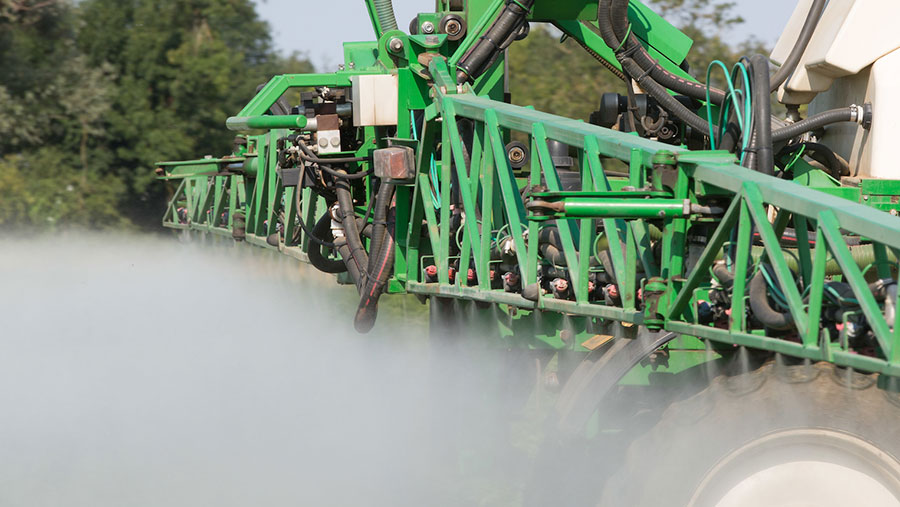Biopesticides to play a greater role on arable farms
 © Tim Scrivener
© Tim Scrivener Biopesticides, such as insect-killing bacteria, will play a major role in tackling pests and diseases in the UK’s arable crops in the coming years, believes one expert.
Annual approvals of new biopesticides in the EU will soon exceed the number of conventional pesticides, with more than 40 products already available in the UK.
The horticulture sector has seen real progress, including the successful control of red spider mite in Europe’s tomato crops over the past decade. This involves a predator as the primary control combined with a fungus acting as a second line of defence.
See also: Three growers look for alternatives to world’s top herbicide
In the past 50 years, the convention has been to use chemical pesticides, but they have been used in an unsustainable way, says David Chandler, researcher at the University of Warwick. “This has led to problems like resistance.”
Another problem farmers face is the loss of chemical products, thanks to a combination of actives no longer working, products not being reapproved and retailer restrictions. Added to this is the fall in the number of new product approvals because of the high costs involved.
Integrated approach
Dr Chandler believes taking an integrated approach is the way forward. This is where growers use cultural controls, natural enemies, crop resistance and the targeted use of pesticides and biopesticides.
Integrated pest management (IPM) is already mandatory, under the EU Sustainable Use Directive on pesticides.
“So this sets the direction of travel in the coming years, with different IPM tools working together to provide robust pest control,” he explains.
So what are biopesticides? They include microbes that kill pests and semiochemicals, which are compounds produced by organisms to alter the behaviour of others such as pheromones. Another group is botanicals, produced by plants and essential oils.
The key property is that they have minimal risk, have a low harvest interval and are compatible with the use of predators and parasitoids. The latter is an insect whose larvae live as parasites that eventually kill their hosts.
Biopesticide examples in horticulture, protected crops and fruit include Beauveria bassiana, a fungal pathogen of whiteflies, Bacillus subtilis, which can tackle fungal diseases in grapes, and Chenopodium terpenes, an essential oil for the control of spider mites.
In one trial highlighted by Dr Chandler, using Bacillus subtilis within an integrated programme gave control comparable to a conventional fungicide on powdery mildew.
“Pheromones can give more than 90% control of codling moths in European orchards, which is quite amazing,” he said. But while these example show biopesticides work, the downside is that efficacy can prove variable for some.
AHDB project
A five-year AHDB project is looking at UK practice in a bid to identify why biopesticides sometimes give poor results.
Early findings confirmed variability in performance and a need to improve spray application. Dr Chandler explained that there was a lack of scientific knowledge to inform farmers and agronomists on application strategy – for example, timing and effective dose.
But despite these challenges, he says biopesticides are having a big effect on horticultural crops and farmers want to use them.
“This is the future of crop protection,” he said. “It will happen in field crops too because of the lack of products and the agchem firms are investing heavily to develop new options.”
Dr David Chandler was speaking at the AHDB Agronomists conference, held in Peterborough.
The future: Biologically based crop products
Biopesticides
- Microbes and metabolites: Grandevo is a bacterial-produced insecticide that can control whitefly, mites and caterpillars
- Peptides: Spear is a spider venom-based compound that is toxic to insects. It is produced using yeast
- RNA: These compounds can silence genes in pests
Growth enhancers
- Microbes: Penicillium bilaiae – mobilises soil phosphates. When applied as a seed dressing, research showed 0.2t/ha yield benefit in maize
- Chemical enhancer: Fortalis helps with calcium mobility and raised soya yields by 0.3t/ha

